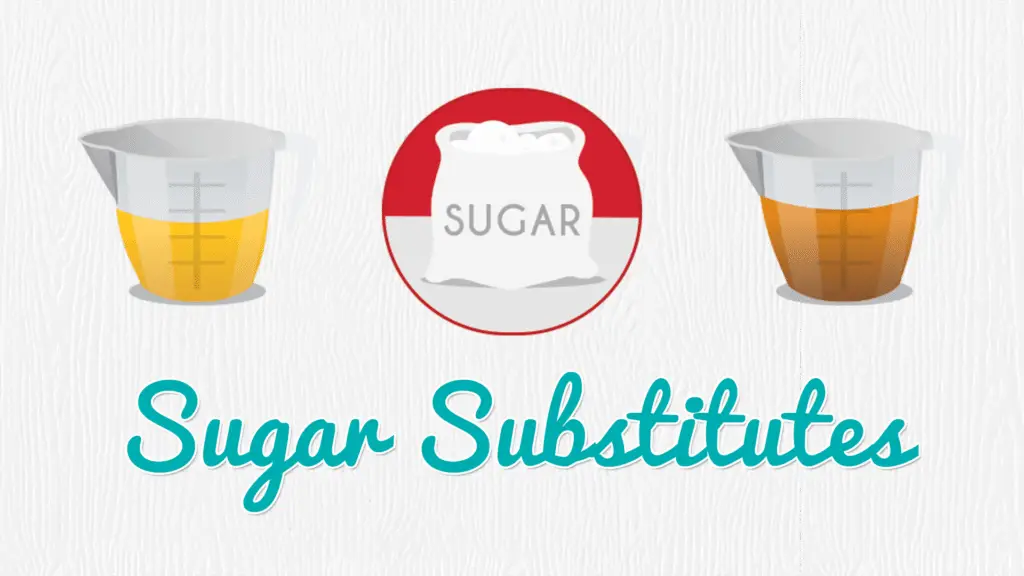In today’s health-conscious world, sugar substitutes have gained immense popularity as people look for ways to reduce sugar intake without sacrificing the sweet flavors they love. Whether you’re managing diabetes, watching your weight, or simply aiming for a healthier lifestyle, understanding the different types of sugar substitutes and how they affect your body is crucial.
🍬 What Are Sugar Substitutes?
Sugar substitutes are ingredients that mimic the sweetness of sugar but usually contain fewer calories and have a lower impact on blood sugar levels. These alternatives can be natural or artificial and are used in a wide variety of products — from diet sodas and sugar-free gum to baked goods and protein bars.
🧪 Types of Sugar Substitutes
Sugar substitutes fall into three main categories:

1. Artificial Sweeteners
These are synthetic sugar substitutes that can be hundreds or even thousands of times sweeter than sugar.
- Examples: Aspartame, Sucralose (Splenda), Saccharin, Acesulfame K
- Pros: Extremely sweet, zero or low calories, heat-stable (some)
- Cons: Controversial health effects in large quantities, can have an aftertaste
2. Sugar Alcohols
Despite the name, these don’t contain alcohol. They are naturally found in some fruits and vegetables.
- Examples: Xylitol, Erythritol, Sorbitol, Mannitol
- Pros: Lower calorie than sugar, tooth-friendly, low glycemic impact
- Cons: Can cause digestive discomfort in high doses
3. Natural Sweeteners
These are derived from natural sources and are less processed than artificial ones.
- Examples: Stevia, Monk Fruit, Yacon Syrup
- Pros: Plant-based, little to no calories, low impact on blood sugar
- Cons: Can have a unique or bitter aftertaste, higher cost
⚖️ Comparing Sugar Substitutes to Regular Sugar
| Type | Calories | Sweetness (Compared to Sugar) | Glycemic Index | Safe for Diabetics? |
|---|---|---|---|---|
| Table Sugar | 4 cal/g | 1x | 65 | ❌ |
| Stevia | 0 cal | 200-300x | 0 | ✅ |
| Sucralose | 0 cal | 600x | 0 | ✅ |
| Erythritol | 0.24 cal/g | ~70% of sugar | 1 | ✅ |
| Xylitol | 2.4 cal/g | Equal to sugar | 13 | ✅ |
| Aspartame | 4 cal/g | 200x | 0 | ✅ (except PKU patients) |
🩺 Health Benefits of Using Sugar Substitutes
- Weight Management
- Fewer calories can help reduce overall caloric intake.
- Blood Sugar Control
- Especially beneficial for people with diabetes or insulin resistance.
- Dental Health
- Sugar alcohols like xylitol help prevent cavities.
- Reduced Risk of Metabolic Syndrome
- Lower sugar consumption can reduce risk factors like obesity and high blood pressure.
⚠️ Potential Risks and Considerations
- Digestive Issues: Sugar alcohols may cause bloating or gas.
- Overuse: Relying too much on sweeteners may maintain sugar cravings.
- Artificial Concerns: Some artificial sweeteners are under scrutiny for possible links to cancer or metabolic disorders (though major health organizations currently deem them safe in moderation).
- Children & Pregnant Women: Certain sweeteners should be used cautiously in sensitive groups.
🧁 Baking with Sugar Substitutes
Not all sugar substitutes behave the same in cooking:
- Stevia: Best used in combination with other sweeteners to avoid bitterness.
- Erythritol: Good for baking but may crystallize and feel gritty.
- Sucralose (Splenda): Heat-stable and great for baking.
- Xylitol: Almost 1:1 replacement for sugar in texture and taste.
🛒 Choosing the Right Sugar Substitute
When selecting a sugar substitute, consider the following:
- Health Goals: Weight loss, diabetes management, etc.
- Taste Preference: Some have strong aftertastes.
- Intended Use: Drinks, baking, daily sweetener
- Digestive Sensitivity: If you’re sensitive to bloating, avoid high levels of sugar alcohols.
🔍 Are Sugar Substitutes Safe?
Most sugar substitutes are considered safe by the FDA, WHO, and other health authorities when consumed in moderation. Here’s a quick summary:
- ✅ Safe: Stevia, Sucralose, Aspartame, Monk Fruit, Erythritol
- ⚠️ Caution: Saccharin (linked to bladder cancer in animal studies), Aspartame (not safe for people with PKU)
- ❌ Avoid Overuse: Especially if you notice side effects like headaches, cravings, or digestive issues
🌱 Natural Alternatives to Consider
If you’re looking for a more natural diet, here are some lower-glycemic sugar alternatives:
- Honey – Slightly better than sugar, but still high in carbs
- Coconut Sugar – Contains nutrients but has a similar calorie count
- Maple Syrup – Rich in antioxidants but high in sugars

These aren’t necessarily low-calorie or diabetic-friendly but can be healthier in moderation due to their natural origin and nutrient profile.
🧠 Final Thoughts
Sugar substitutes can be a valuable tool in maintaining a healthier lifestyle, managing diabetes, or cutting calories — but they’re not a free pass. Moderation, variety, and understanding your body’s response are key.
Whether you prefer plant-based options like stevia, artificial sweeteners like sucralose, or sugar alcohols like erythritol, there’s likely a substitute that fits your taste and health goals.
✅ Key Takeaways
- Sugar substitutes offer a sweet alternative with fewer calories and health benefits.
- They are useful for weight loss, diabetes control, and oral health.
- Always read labels, as many products use a mix of substitutes.
- Choose based on your needs, preferences, and sensitivity levels.
